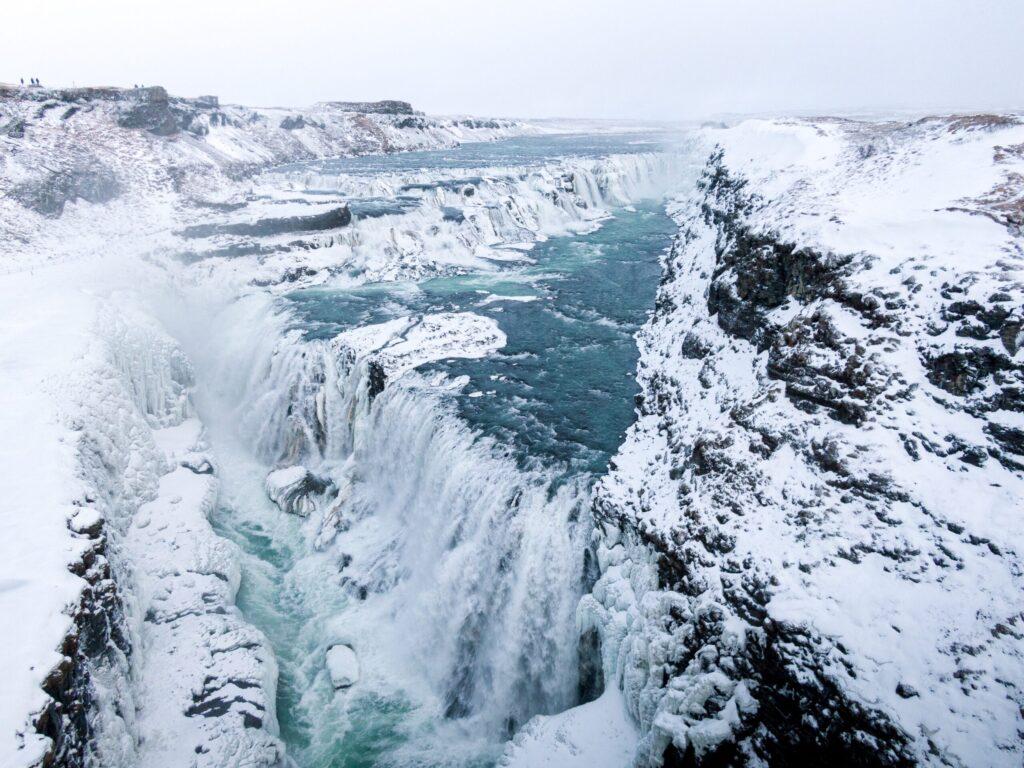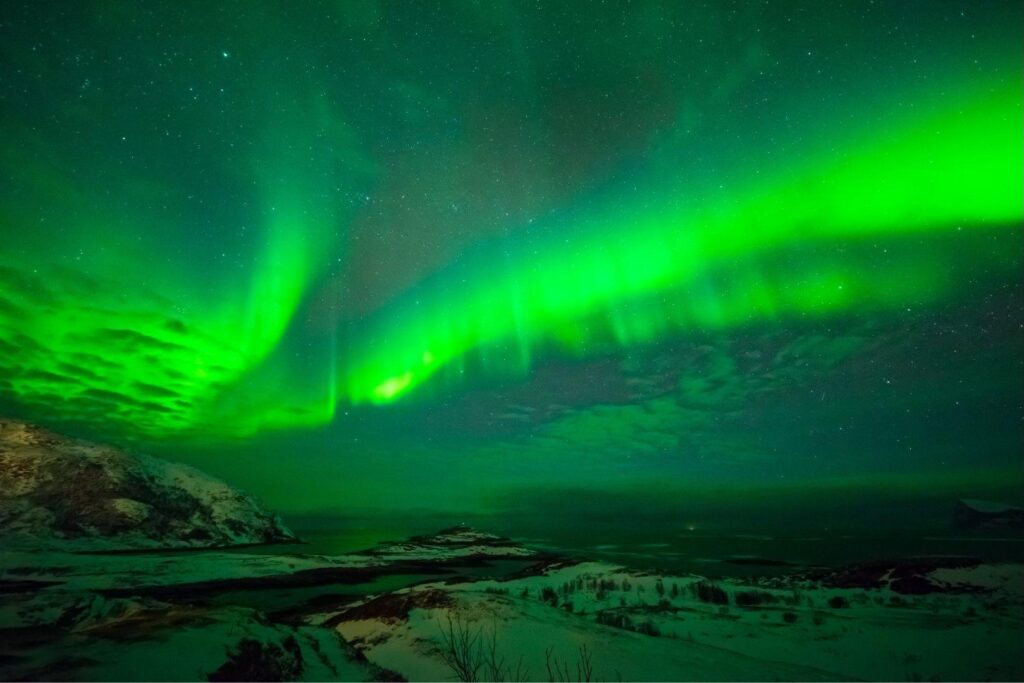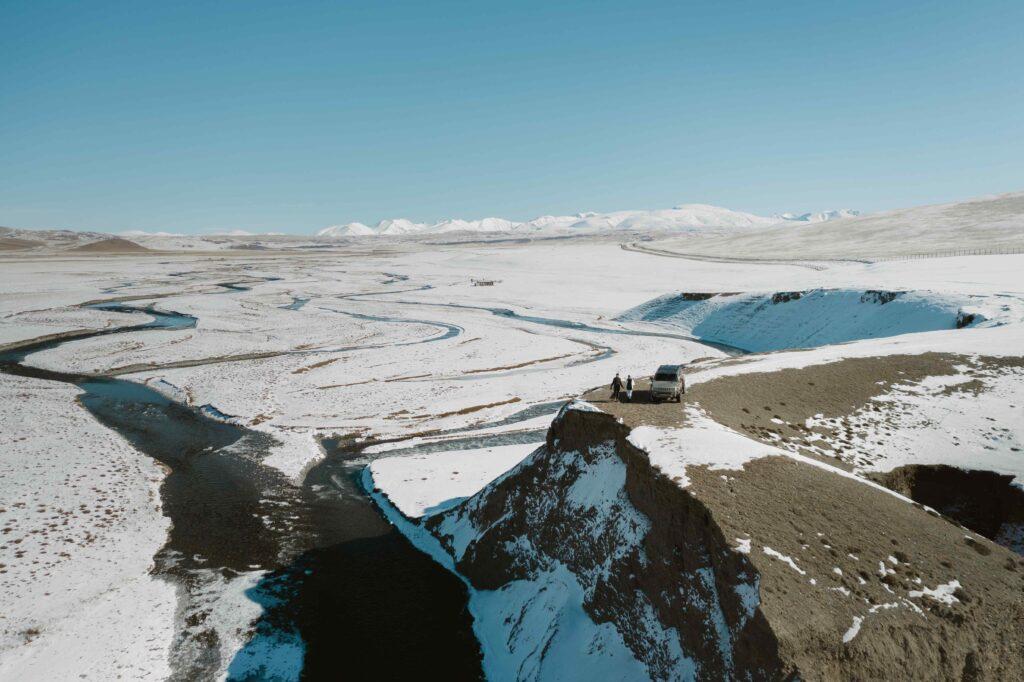White summits of volcanoes, majestic glaciers, and snow-covered landscapes—winter in Iceland provides all the wonder you’d expect from the land of ice and fire. It’s an excellent time to visit Iceland because it’s at its most hospitable, thrilling, and magical.
Is It A Good Time To Visit?

Winter is the longest season in Iceland, encompassing the months of November, December, January, February, and March. This is the coldest and darkest period of the year in Iceland. When looking for Iceland in January weather, understand that it will be cold, snowy, and dark but also very beautiful.
When Iceland followed the Old Norse calendar, there were just two seasons: summer and winter, each lasting six months. According to this calendar, April would also be a winter month, as winter would stretch from the final week of October until the last week of April. Iceland in April isn’t going to be springtime and sunshine as you might expect coming from the southern regions of the globe. In reality, the first Thursday after April 18 is still observed as a national holiday in Iceland to welcome the longer, warmer days of summer. The temperature is frequently below freezing, sometimes even into May.
How Is Iceland In The Winter?
Iceland, in winter, is often dark and chilly due to its location so far north. It’s also breathtakingly beautiful, with stunning pale wintry light, snow-covered mountains, and the possibility of ice adventures.
Temperatures in Reykjavik fluctuate between 0.6°C (33.1°F) and 4.9°C (40.8°F) between October and March. While temperatures can drop much lower, they rarely go below zero. However, expect it to be significantly colder outside of the city where there isn’t protection from the wind and elements.
As a result, the glaciers that have shaped Iceland’s landscape grow larger at this time of year. These can be explored by snowmobile or on foot, as well as the world of caves and caverns that form beneath them.
We couldn’t discuss Iceland in winter without mentioning the northern lights. The aurora borealis, an incredible phenomenon for which Iceland is particularly famous, shimmers across bright winter skies at night. It should not be overlooked. These are very popular tours in Iceland and can be seen best during the dark, cold winter months.
Winter brings forth a different side to Iceland’s villages and towns. Much of life takes place indoors, and every home or bar transforms into a friendly, warm, and snug environment. Nothing beats coming in from the cold and sitting down by the fire with a beer or a mug of cocoa.
Is It Completely Dark In The Winter?
The extreme north of Europe is notorious for being completely black during the winter. However, this is a bit of a misconception.
The sun rises at 11:22 and sets at 15:29 on the shortest day of the year, December 21, in Reykjavik. However, Reykjavik has eight hours of daylight at the beginning of November. In early March, the day can stretch up to ten hours.
Of course, as you travel further north, the days become shorter. There is, however, still enough daylight to appreciate, as well as plenty to enjoy when it is dark outdoors.

Is It Snowing In Iceland In The Winter?
Iceland has relatively low winter temperatures, making the entire nation quite snowy. There’s a reason it has some of Europe’s largest glaciers!
But how much snow falls in Iceland? There are only four months of the year when there is no snowfall in Reykjavik: June through September. On average, you may expect at least a little snow every other month of the year.
However, as temperatures drop as you leave the city, snow is more frequent outside of Reykjavik, especially at higher elevations.
Driving In Iceland During The Winter
Driving in Iceland during the winter is frequently a source of concern for visitors. However, the roads are well maintained, and most Icelanders travel by automobile, even in the winter.
However, the weather in Iceland can be unpredictable, especially during the winter. And you might not want to deal with the inconvenience of road closures or the possibility of poor weather. The best way to stay on top of weather updates is to go to www.vedur.is for the latest weather updates. The site is available in English and provides the best and most accurate information on the weather conditions in Iceland.
To find your winter tour you can browse available tours and activities here.

